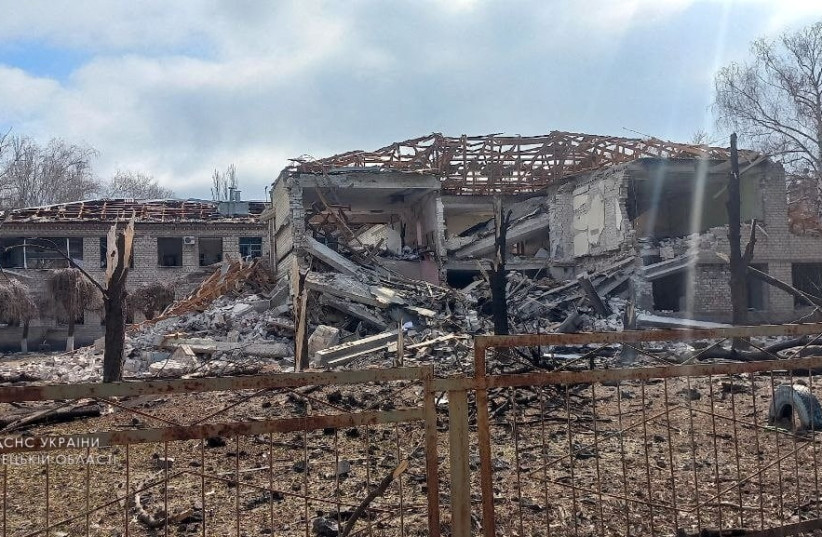Turkey and Iran are both watching not only the outcome of the Ukraine conflict but also the talks aimed at securing some kind of peace and ceasefire.
This is important for Ankara because it trades with both Ukraine and Russia and Turkish drones are playing a role in Ukraine’s war. Turkey is also buying Russian S-400s, and its media has even claimed “terrorists” are aiding Russia. Ankara is in a tough spot but it also could get the best of both worlds.
Iran also wants the conflict resolved because it wants a nuclear deal with Washington. Russia has appeared to be holding up that deal in recent weeks. Iran’s media said on March 21 that the US was putting pressure on Ukraine not to accept Russia’s terms.
Meanwhile, Kyiv is warning of a wider war if Moscow doesn’t accept the terms of the current talks and ups its attacks. As Moscow bombs hospitals, schools and theaters, it seems unlikely it will suddenly decide to stop. Russia seems intent on destroying additional Ukrainian cities and using Ukraine as a testing site for its new weapons. This is its Syria model: Destroy a country while using new weapons.
Turkey’s state media said overnight on Sunday that Russia and Ukraine are near an agreement on "critical" issues and its foreign minister Mevlut Cavusoglu said he is hopeful for a ceasefire if the two sides do not backtrack from progress achieved so far.
There had been "rapprochement in the positions of both sides on important subjects, critical subjects," he said in an interview with Turkish Radio and Television (TRT) published on Sunday. What else did he say? "We can say we are hopeful for a ceasefire if the sides do not take a step back from the current positions." Turkey’s presidential spokesman Ibrahim Kalin has also been speaking out about the war.
Meanwhile, “Foreign Ministers Sergey Lavrov of Russia and Dmytro Kuleba of Ukraine met in the Turkish resort town of Antalya earlier this month with Turkish Foreign Minister Mevlut Cavusoglu also attending," the Turkish English-language public broadcaster reported.
"The discussions did not yield concrete results… But it was the first time that Moscow and Kiev met at the ministerial level since Russia attacked its neighbor. Cavusoglu also traveled to Russia and Ukraine last week for talks with Lavrov and Kuleba.”

Kalin said a permanent ceasefire could come only through a meeting between Putin and Ukrainian President Volodymyr Zelensky, TRT reported. But he said Putin felt that positions on the "strategic issues" of Crimea and Donbas were not close enough for a meeting.
Meanwhile, Iran’s Tasnim News Agency also hyped the Turkish role, noting that “Turkey continues to hope for a peace agreement between Russia and Ukraine, while the Russian foreign minister believes that the United States is putting pressure on the Kiev authorities and will not allow them to agree to the rational demands of the Russian side, although negotiations are ongoing."
Humanitarian corridors to evacuate residents of besieged cities in Ukraine are still active, despite differences between Moscow and Kyiv over the direction of these routes, according to a Tasnim report.
Iranian media noted that Russia has opened humanitarian corridors, something it did during the Syrian war as well. “Each of these humanitarian corridors leads to both Russia and the Ukrainian-controlled territories to the western borders of the country. More than 6,600 people were evacuated through humanitarian corridors in some urban areas on Saturday, March 19, Ukrainian Deputy Prime Minister Irina Varshuk said.”
Ukraine has accused Russia of war crimes in its siege of Mariupol where Russia is bombing civilians. Zelensky also said that peace talks with Moscow were still needed, although they were not "easy and pleasant,” Iranian media said.
